- Biotin, also known as vitamin B7, is essential for skin health and energy conversion.
- Biotin deficiency is linked to seborrheic dermatitis, but deficiency is rare.
- Research on biotin as a direct treatment for seborrheic dermatitis is limited but shows some promise, especially in deficiency-related cases.
- Always consult a healthcare provider before using biotin or any supplement for skin conditions.
When dealing with skin conditions like seborrheic dermatitis, vitamins and supplements often come up as potential aids. Biotin, also known as vitamin B7, is one such supplement. This article delves into the possible connection between biotin and seborrheic dermatitis and what it could mean for managing this skin issue.
Quick Read: This article examines the potential role of biotin (vitamin B7) in seborrheic dermatitis. While biotin deficiency might be related to the condition, strong evidence for biotin as a treatment is lacking. Some studies suggest it could be beneficial in specific situations, but more thorough research is needed. We also touch upon biotin’s importance for skin health and safety considerations. It’s always best to get advice from a doctor before using biotin or other supplements for skin health.
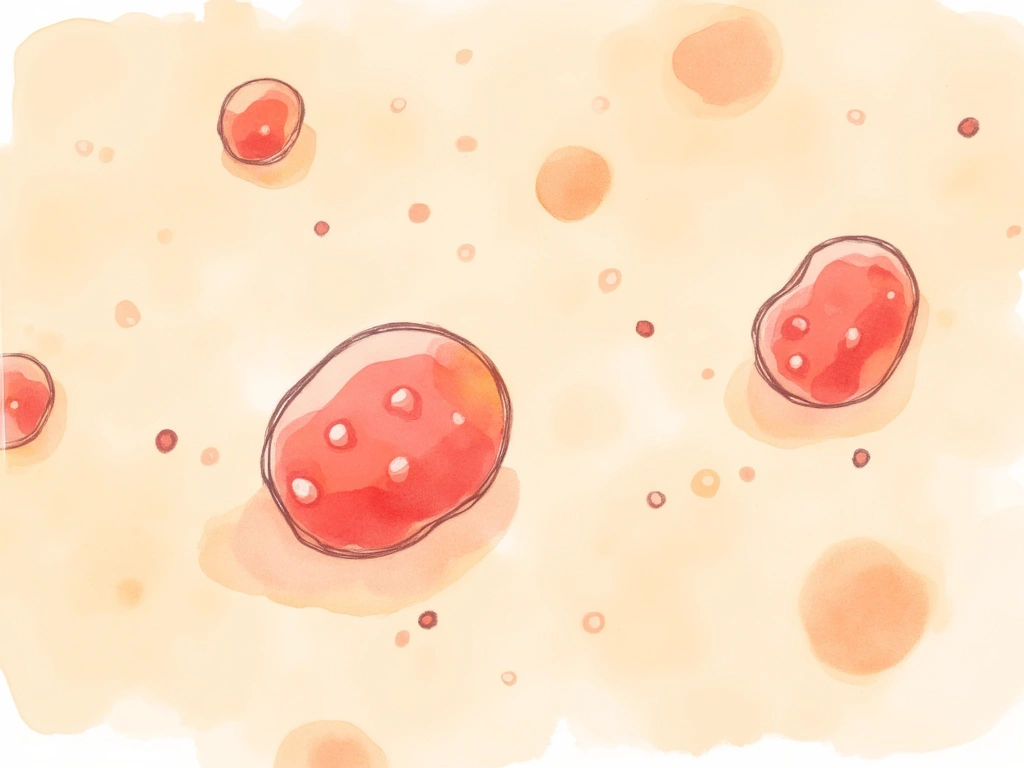
Understanding Seborrheic Dermatitis
Seborrheic dermatitis (SD) is a long-term inflammatory skin condition that shows up as red, flaky, and greasy skin patches. While the exact cause isn’t fully known, it’s thought to involve sebum (skin oil), the Malassezia yeast, and how your immune system reacts [1]. Current treatments range from antifungal medications and topical corticosteroids to calcineurin inhibitors [1]. However, there’s ongoing research to create better treatments that are effective, safe, and appealing to users.
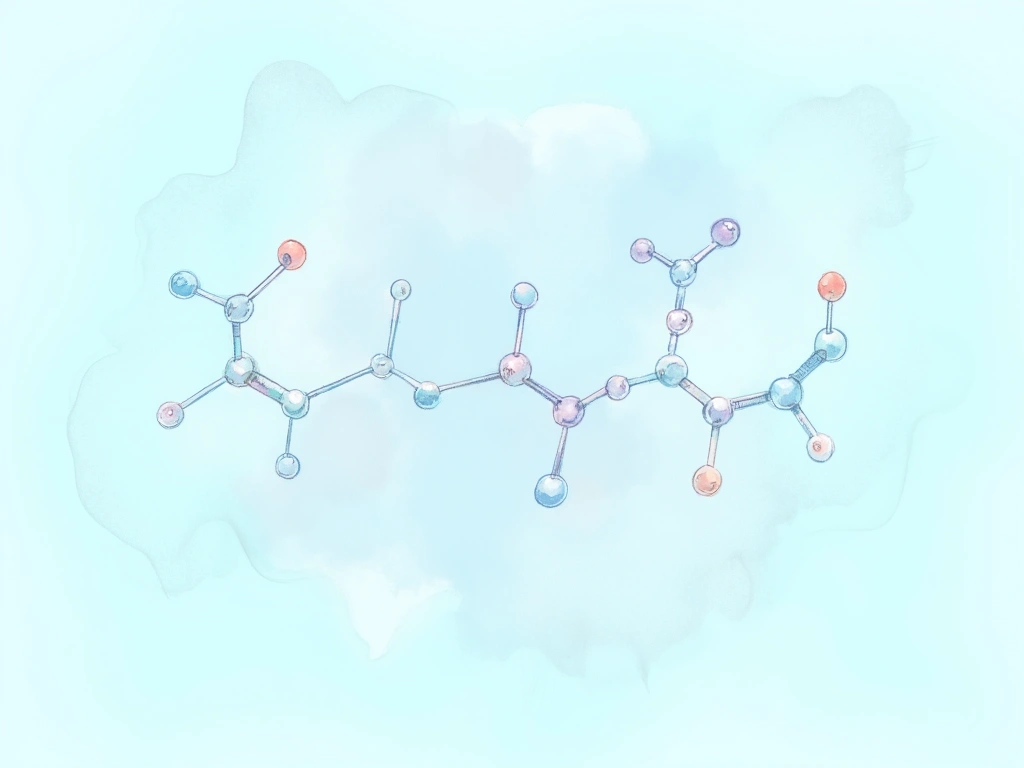
What Exactly is Biotin?
Biotin, an essential B vitamin, goes by names like vitamin B7, vitamin H, or coenzyme R. Its main job is to help your body turn food into energy. Biotin is also key for keeping your skin, hair, and nails healthy. Adults and pregnant women generally need around 30 mcg of biotin daily.
Natural Biotin Sources in Your Diet
If you’re looking to boost your biotin intake through food, several options are naturally rich in this vitamin [2], including:
- Peanuts
- Red peppers
- Liver (beef, pork, and chicken)
- Kidney (beef)
- Egg yolks
- Instant coffee
- Dried baker’s yeast
- Royal jelly
It’s important to remember that while these foods can contribute to a balanced diet and help maintain healthy biotin levels, they aren’t a guaranteed fix for seborrheic dermatitis.
Biotin is also a common ingredient in multivitamins and is sold as a supplement, often marketed for improving hair, skin, and nail health.
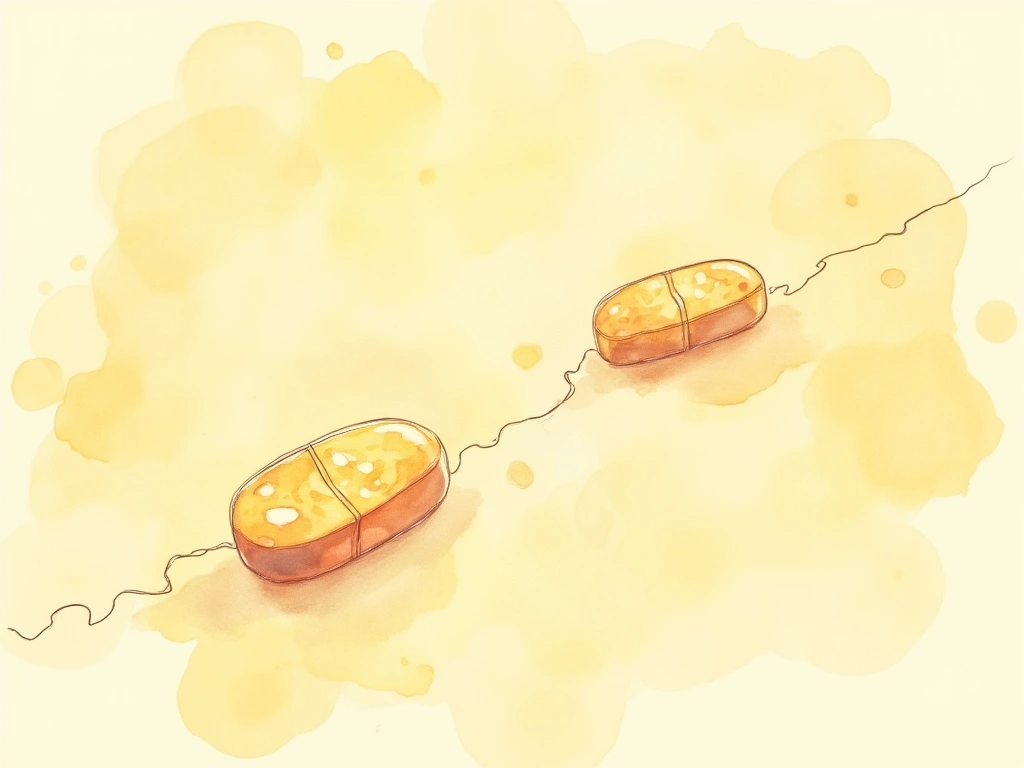
The Link Between Biotin Deficiency and Seborrheic Dermatitis
Several connections exist between biotin deficiency and seborrheic dermatitis:
- Congenital biotinidase deficiency: This rare genetic condition prevents the body from properly using and recycling biotin, leading to severe and persistent biotin deficiency. Skin rashes, including seborrheic dermatitis, are frequent symptoms.
- Medications: Certain drugs, like some anticonvulsants used for epilepsy, can potentially cause biotin deficiency. Seborrheic dermatitis has been reported as a side effect in individuals taking anticonvulsants long-term.
- Malabsorption disorders: Conditions that impair nutrient absorption, such as Crohn’s disease and short bowel syndrome, can result in biotin deficiency and are also associated with a higher risk of seborrheic dermatitis.
- Pregnancy and Breastfeeding: Biotin needs increase during pregnancy and breastfeeding. Deficiency has been seen in women during these periods, with some developing seborrheic dermatitis that improved with biotin supplements.
Research suggests that biotin deficiency might increase susceptibility to seborrheic dermatitis, and biotin supplementation could help manage symptoms in deficient individuals. However, evidence for biotin as a direct treatment for seborrheic dermatitis in the general population remains limited.

Biotin’s Role in Maintaining Healthy Skin
Biotin is vital for overall skin health, and a lack of it can lead to various skin problems [3]. Deficiency can manifest as a scaly, red rash, particularly around the eyes, nose, mouth, and perineal area [4]. It’s also linked to irritant contact dermatitis, possibly due to increased ATP production in the skin [5].

Can Biotin Supplements Treat Seborrheic Dermatitis?
Given biotin’s role in skin health, it’s understandable why biotin supplements are often recommended for hair, skin, and nail issues [6]. One study (funded by the supplement’s manufacturer) reported significant improvements in seborrheic dermatitis severity and symptoms like itching and sleep problems with Natubiotin, a vitamin therapy containing biotin [7].
Examining the Research on Biotin and Seborrheic Dermatitis
Here’s a summary of studies investigating biotin’s potential benefits for seborrheic dermatitis:
- Infant Studies (1970s): Two studies in the 1970s treated infants with seborrheic dermatitis using oral biotin. One study noted moderate improvement [8], while the other found no difference compared to placebo [9].
- Inborn Errors of Metabolism: In infants and children with conditions causing biotin deficiency, such as phenylketonuria (PKU), biotin supplements combined with dietary changes helped resolve seborrheic dermatitis lesions [10].
- Low Biotin Levels in SD Patients (2001): A small 2001 study observed lower biotin blood levels in people with seborrheic dermatitis compared to healthy individuals [11]. Researchers suggested assessing biotin status in those with chronic, treatment-resistant seborrheic dermatitis.
- Medication-Induced Deficiency Case Reports: Several case reports describe seborrheic dermatitis appearing or worsening in people taking medications that can lead to biotin deficiency, like anticonvulsants [12]. Skin symptoms improved for most when biotin supplements were added.
- Biotin Injections for Nursing Mothers: Biotin injections given to breastfeeding mothers were found to help treat seborrheic dermatitis in their breastfed infants [13].
Overall, research hints at potential benefits of biotin for some cases of seborrheic dermatitis, especially those related to deficiency, but the evidence is still preliminary. More extensive and rigorous clinical trials are needed to definitively determine if biotin supplementation is an effective treatment for this condition, particularly in infants [14, 15].
Biotin for Hair Loss and Scalp Health
Besides seborrheic dermatitis, biotin has been studied for other hair and scalp issues like alopecia (hair loss). This is relevant because seborrheic dermatitis on the scalp can sometimes lead to hair loss. Research has explored the link between biotin and various types of alopecia:
- Male Pattern Baldness (2018): A 2018 study found that men with male pattern baldness had lower biotin levels compared to men with healthy hair. Researchers proposed biotin supplements as a potential way to improve hair quality [16].
- Androgenetic Alopecia and PRP (2022): A 2022 study combining platelet-rich plasma (PRP) injections with oral biotin for androgenetic alopecia in men showed significantly better hair regrowth compared to PRP alone [17].
- Alopecia Areata (2020): A 2020 study found lower blood biotin levels in individuals with alopecia areata, suggesting a possible role of biotin deficiency in this condition [18].
- Alopecia in Children (2019): A 2019 study in children with alopecia and biotin deficiency showed that biotin supplements helped prevent abnormal protein excretion related to hair growth [19].
These findings suggest that insufficient biotin levels might contribute to certain forms of alopecia. Correcting biotin deficiency through supplements could aid hair regrowth, especially when used with other treatments. However, further research is still warranted.
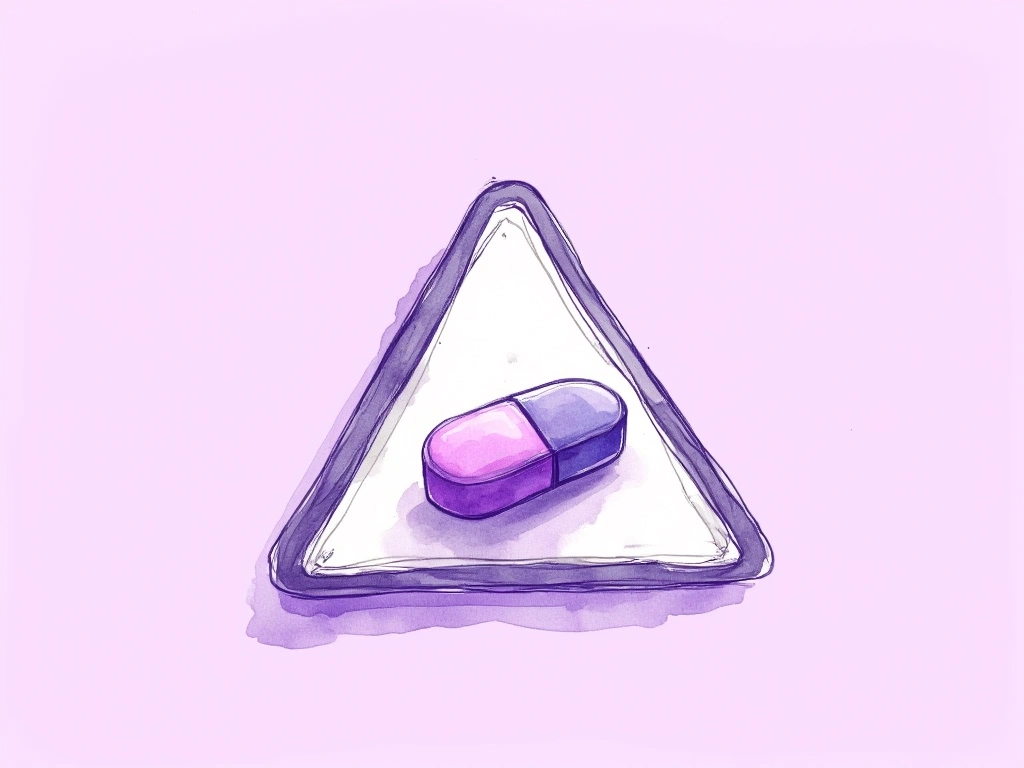
Safety Considerations for Biotin Supplementation
While biotin supplements might seem promising for seborrheic dermatitis, it’s important to be aware of potential safety concerns [6]. The FDA has issued warnings about biotin’s interference with lab tests, which can lead to inaccurate diagnoses and potentially serious health consequences [20]. High doses of biotin in supplements have also been linked to structural changes in testes, potentially affecting sperm production [21]. More research is needed to fully understand biotin’s safety profile and potential risks [22].

Using Biotin for Seborrheic Dermatitis: Key Considerations
If you’re thinking about using biotin to manage seborrheic dermatitis, it’s crucial to be cautious and well-informed. Here are important points to keep in mind:
- Consult Your Healthcare Provider: Always talk to your doctor before starting any new supplement, including biotin. This is especially important if you are taking other medications or have existing health conditions.
- Appropriate Dosage: The Mayo Clinic recommends 30 to 100 micrograms (mcg) of biotin daily to prevent deficiency in adults and teenagers. If considering biotin for seborrheic dermatitis treatment, your healthcare provider should determine the right dosage based on your individual needs and potential deficiency.
- Combination Approach: Biotin alone is unlikely to be a complete solution for seborrheic dermatitis. For the best results, combine biotin supplementation with standard dandruff treatments and other therapies recommended by your doctor.
- Maintain Good Hygiene: Continue practicing good hygiene, as this is essential for managing seborrheic dermatitis. Regularly cleaning and caring for affected areas can help control symptoms.
The Importance of Professional Diagnosis
- Get an Accurate Diagnosis: Always see a healthcare professional for any persistent rash or skin symptoms. Seborrheic dermatitis can resemble other skin conditions like psoriasis and fungal infections, so accurate diagnosis is crucial for effective management.

In Conclusion: Biotin and Seborrheic Dermatitis
In summary, biotin shows some potential for helping manage seborrheic dermatitis, particularly when a deficiency is present. While biotin deficiency is linked to the condition and some studies suggest benefits from supplementation, more research is necessary to fully understand its effectiveness and safety. It’s essential to consult with a healthcare professional before using biotin or any other supplements for skin health. They can provide personalized advice and ensure biotin supplementation is appropriate and safe for you.
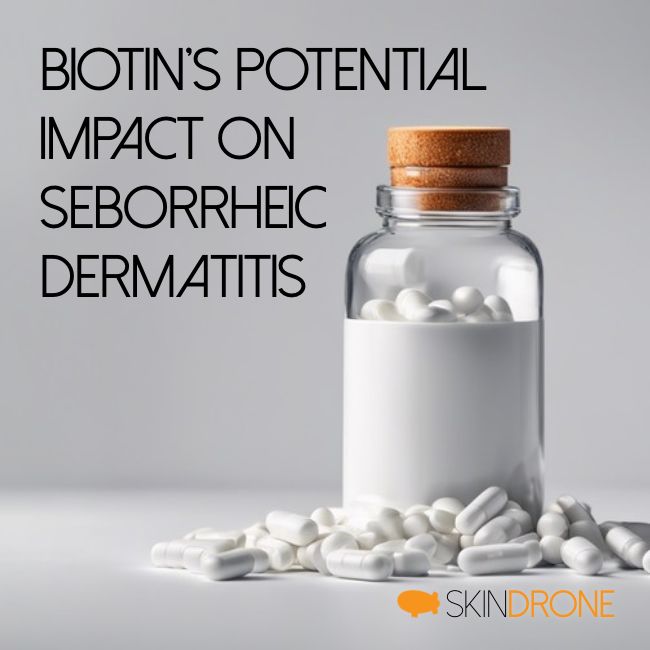
No Comments
Be the first to start a conversation